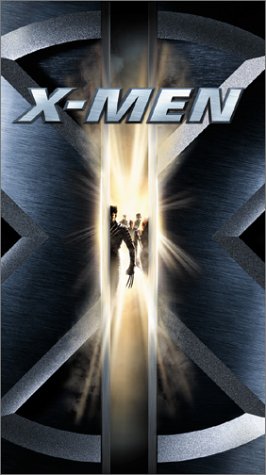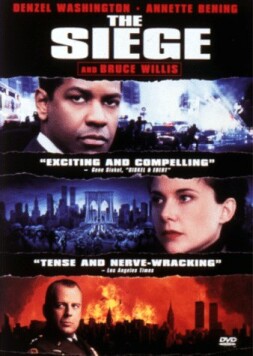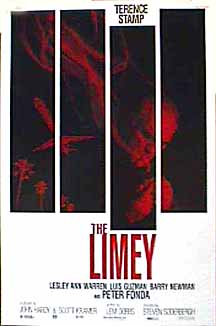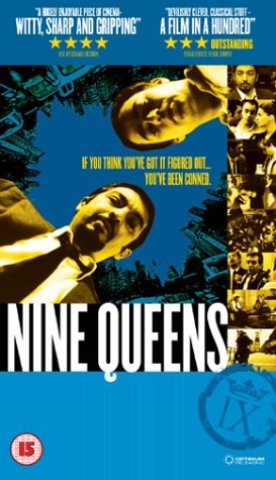X-Men
All by itself, X-men seems to have turned around Hollywood’s summer, earning $57.5 million in its opening weekend (more than any other July film, ever) and making a lacklustre box office into something not far short of boffo. As to an adult sensibility (but who has one of those anymore?) this techno-fantasy may look all but indistinguishable from a hundred others which have come out of Hollywood in recent years, it is worth pausing for a moment to ask ourselves what might be the reason why this film should be so much more popular than the others of its kind.
A clue is provided by the comment of Avi Arad, the chief executive of Marvel Studios, the film’s co-producers, when he says that “We’ve all felt like outcasts in one way or another. . . Being smart or stupid, too tall or short, the feeling of ‘Oh, I’m different.’ We’re all mutants in our own way.” In other words, this movie is an allegory of adolescence. We are told at the outset that the mutants’ powers become manifest at the onset at puberty, and especially in times of emotional stress. It is not coincidental that this is also the time when even non-mutants begin to feel different, unusual, freakish, isolated and opposed to authority — and to fantasize about possessing superhuman powers.
Almost all movies have built in to them a tendency to wish-fulfilment, which is one reason why so many are pornographic, or quasi-pornographic. The temptation of making one’s dearest and most sentimental fantasies look real (and the great thing about movies is that they can make almost anything look real) is too much for all but the strongest-minded and most artistically dedicated filmmakers to resist. But if you pick the right fantasy, one which is universal enough and cherished enough, you can also make millions of dollars in catering to the fantasies of a mass audience.
This is what the producers of X-men have done. The fantasy here is a more raw and pop-cultural, less decorous version of that other commercial phenomenon of the summer, J.K. Rowling’s latest Harry Potter novel, in that it appeals to what is perhaps the most cherished adolescent (or pre-adolescent) fantasy of all: the fantasy of being both uniquely gifted and uniquely misunderstood and unappreciated. And for all the misunderstood and unappreciated, the fantasy supplies in both cases a refuge: an imagined “school for the gifted” where those who had come to feel utterly alone can find others like themselves. In the words of F***head (Billy Crudup) in Jesus’ Son, a slightly more grown-up version of this fantasy, “I never imagined there might be a place in the world for people like us.”
In the movies, of course, you can imagine it — along with any number of magical powers to justify your own conceit of yourself as uniquely talented. Both Harry Potter and the teenage mutants of X-men possess such powers, and both find themselves under the tutelage of sympathetic adults who share the same secret — in X-men, the telepathic Charles Xavier (Patrick Stewart) — and who are a sort of dream-parents. Unlike one’s real parents, that is, they do not try to enforce a hated conformity upon one. They do not worry about school in the ordinary sense of solving algebra problems or learning French verbs — or about college and jobs and dressing well and minding one’s manners. They know one is special and that one should devote oneself only to the talent that makes one special.
The adult enforcers of conformity are caricatures, and often linked to oppressive governments. This has a natural appeal to those who are still capable of thinking that it is “fascist” to be asked to wear a tie. X-men presents us with both a mutant adult bad-guy, the sinister Magneto (Ian McKellen), and the non-mutant Senator Kelly (Bruce Davison), who is trying to pass a law to register and regulate the lives of the mutants, of whom non-mutants (“Muggles” in the Potterian terminology) are afraid. Kelly is a demagogue who tries to rouse the rabble by frightening them, and stressing the need to “protect our children against mutants.” His punishment is to become, by Magneto’s arts, a mutant himself, so that he can learn the hard way — and a very hard way it is, too, when his body turns to water and spills itself on the floor — how horrible he has been to the poor mutants.
Magneto, by contrast, is obviously a good-guy gone bad. The film begins with his discovering his super-power, to bend metal by telepathic force, as a child being torn from his parents by Nazis in the Warsaw ghetto. Obviously traumatized by this early example of conformist society’s oppression of minorities, he has become a militant. When the young heroine, Rogue (Anna Paquin) whom he has kidnapped in order to make use of her super-powers against the oppressors, asks him if he is going to kill her, he replies, somewhat illogically, that he is — because there is none of the tolerance and peace which he imagined were promised him by the Statue of Liberty when he arrived in America in 1949.
Magneto’s wicked plan is to irradiate the entire world so that everyone will become mutants and the straight world (if we may adapt a phrase) and its oppression will thus cease to exist. The more liberal-minded mutants — who include, besides Xavier, Jean Grey (Famke Janssen) and the charmingly and appropriately nicknamed Wolverine (Hugh Jackman), Cyclops (James Marsden) and Storm (Halle Berry) — do so perhaps partly in order for the special character of the mutants to be preserved, but there is another subtext to their struggle, as pointed out by Magneto’s alter ego, Ian McKellen, whose own web-site stresses a comparison to the political agitation of gays, women and ethnic minorities for civil rights.
The use of the struggles of the civil rights movement as a metaphor for those of immaturity against what are, after all, largely imaginary grievances might be considered offensive by some. But it could also be seen as a convenient reductio ad absurdum for whatever revolution of the would-be oppressed will be next to try to appropriate that model.
Discover more from James Bowman
Subscribe to get the latest posts to your email.







